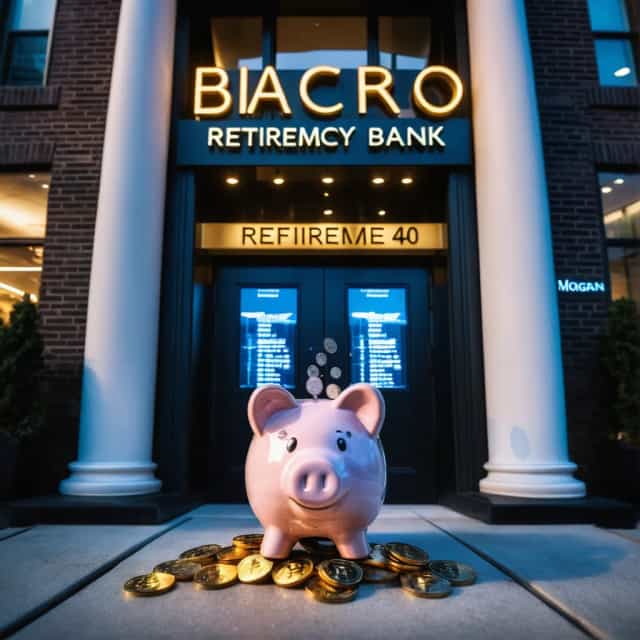
Image source: Block Media
UK Retail Investment Giant Hargreaves Lansdown Issues Bitcoin and Cryptocurrency Warning Amid Regulatory Shifts
Hargreaves Lansdown, the UK’s largest retail investment platform, has issued a stark cautionary statement about Bitcoin (BTC) and other cryptocurrencies. The firm has openly declared that “Bitcoin is not an asset class and should not be included in investment portfolios,” sounding an alarm for retail investors resuming trading in cryptocurrency exchange-traded notes (ETNs). Despite the recent regulatory changes allowing such investments, Hargreaves Lansdown stresses the inherent risks and lack of stability associated with digital assets.
Bitcoin’s Limitations as an Investment Asset
In a statement reported by CNBC on October 10, Hargreaves Lansdown emphasized, “Bitcoin cannot be considered an asset for generating high returns and does not contribute to long-term income generation or stable income strategies.” The firm further elaborated that digital currencies, including Bitcoin, lack intrinsic value and are consistently plagued by insufficient data supporting performance analysis. These warnings from the investment giant highlight the unpredictable nature of cryptocurrencies and their divergence from traditional investment models.
The advisory comes in the wake of the UK government’s decision on October 8 to lift its ban on retail trading of cryptocurrency ETNs, signaling a pivotal regulatory shift. ETNs, which resemble bonds, are financial products tied to the performance of specific assets, offering indirect exposure for investors. With the ban lifted, retail investors in the UK can now incorporate digital assets into their portfolios, albeit cautiously, as Hargreaves Lansdown remains firm in its reservations about their suitability.
Growing Consumer Demand Meets Cautious Integration
Despite its critical stance, Hargreaves Lansdown acknowledges the increasing demand for cryptocurrency products among its customer base. Reflecting this growing interest, the firm plans to introduce a limited offering of cryptocurrency ETNs starting in early 2026. This measured approach signifies a cautious engagement with the evolving digital asset landscape while maintaining focus on investor safety.
Regulatory Changes Reflect Institutional Acceptance
The UK’s decision to remove the ban on cryptocurrency ETN trading has broader implications, signaling a progression toward institutional acceptance of digital assets. Key among these changes is the approval for including cryptocurrency ETNs in Individual Savings Accounts (ISAs), providing tax-free benefits on investments up to £20,000 (approximately $24,400) annually. This allows UK investors to diversify holdings alongside stocks and bonds while enjoying tax advantages, potentially accelerating the adoption of cryptocurrencies within mainstream financial systems.
Bitcoin, which is currently trading around $121,000 following a recent surge past $125,000 and subsequent correction, exemplifies both the allure and risks in cryptocurrency investment. In its analysis, Hargreaves Lansdown underscored Bitcoin’s historical performance—delivering substantial returns at times, but also experiencing severe price crashes. The firm highlighted its volatility as a significant drawback compared to the relative stability of traditional asset classes like stocks and bonds.
Polarized Institutional Views on Cryptocurrencies
The stance on cryptocurrencies remains deeply divided among financial institutions. Some, such as Morgan Stanley, are moving to provide retail cryptocurrency access through platforms like E-Trade, while others, including JP Morgan, are planning to incorporate stablecoins into payment solutions. These forward-looking strategies contrast sharply with the skepticism expressed by prominent figures like Warren Buffett and JP Morgan CEO Jamie Dimon, who remain steadfast critics of digital assets.
Nevertheless, certain analysts argue that cryptocurrencies are transitioning into a new phase of legitimacy within the financial ecosystem. Nigel Green, CEO of DeVere Group, stated, “Bitcoin is no longer just a fringe curiosity. Institutional participation is growing, and the approach of holders is pivoting toward long-term strategies.” This shift in perception indicates a structural evolution in how cryptocurrencies are absorbed into mainstream finance.
The Evolving Role of Cryptocurrencies in Traditional Finance
As retail investors show increasing interest and regulatory frameworks grow more accommodating, cryptocurrencies are carving out a unique role in traditional financial systems. The UK’s regulatory changes are a testament to this ongoing transformation, fostering both opportunities and challenges for stakeholders. While Bitcoin and other digital assets remain controversial for their volatility and speculative nature, institutional trust and integration are gradually gaining traction. Investors should weigh these factors carefully, navigating the complex balance between opportunity and risk in this emerging financial landscape.










